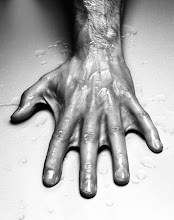7.30 Alarm goes off (but it blasts at 4.30am on a Friday) and I snooze. Wish I could do a Lazarus the second it goes off. But I can't
8.30 Am finally out of the house on an empty stomach. On my walk of just a few hundred yards to the bus stop I pass 4 patisseries. Brilliant France. Depending on the day, I go to the best one open and snaffle a pain au choc + maybe something special. There is even one open by 5am on Friday.
9.30-11.30 Theoretical class. 2 hours without a break. This is tedious. Our classroom lessons include food/business law, applied arts (various drawing and design skills), hygiene, economics and techno (theory of everything we do in the labo... how sugar is refined, why salt is used in sweet pastry, where cacao comes from and so on). We learn by copying notes off the board or filling in worksheets. If we're lucky in hygiene we get an early 90s training video.
LUNCH - we get a decent lunch break. I normally grab a baguette which one of the bakers will have made that morning and nip off to buy some MDC or rilettes.
13.00-20.00 Labo time - this is what it's all about. The labo is made up of 8 workstations for two people. Each one has a mixer, an electric balance, a huge marble work surface, a sink and a single gas ring. Underneath the worktops are drawers into which we stash our utensils and a series of racks for oven trays/grills (which also fit directly into the fridges and freezers).
At the start of the session, the prof will write the day's scheme of work on the whiteboard. If we know what we are doing (i.e. we've done the recipe before) we just set to work. As new recipes/techniques crop up the chef will do a demonstration on his bench. Occasionally we get recipe sheets but generally we have to rely on note taking. Since we do not all do the same things every day you may see a demo several days before you'll be cooking the thing yourself.

Today's schedule. I am in group 3.
And then we just get on and cook. Nobody talks, it's a very focussed atmosphere. It's not a pressured environment like you might expect in a professional kitchen and people are not stressed - but everyone has something to be doing (or rather 5 things to be doing plus a bun in the oven) and needs to concentrate.
While we get on, the chef circulates willy nilly, prods your petits-fours and gives advice when he thinks necessary. I like to ask lots of questions so I'll often call him over to seek wisdom. Except on the days when my French isn't working.
We have a short pit stop for 15mins mid afternoon.
One thing that I find surprising is that there is no proper tasting of finished products. Anything cooked by the break you can munch on and you can try things at the end, but tasting is not an official part of our education. I would have expected it to be paramount (and I am sure it must be in normal cookery schools) but here it is not.
In a sense, patisserie is very scientific and we don't season like normal chefs... there's much less subjectivity. However, I think it's very important to know what we're making. There's not even a point at which the chef casts judgement on final presentation unless he happens to arrive at your workpoint at the right moment or you hunt him down.
So you have to be proactive with stuffing your gob and fishing for compliments.
The last half hour is dedicated to cleaning. Not washing up - we wash up all our own utensils throughout the session - but cleaning the labo to industrial standards. That involves hosing done the floors, scrubbing and squeeging every day, frotting the deep-freeze, bleaching all the worksurfaces and so on. Bloody bore. But when we get in after lunch there's no way of telling the previous group has already spent 7 hours in there that morning. Which is nice.
21.00 I finally get home.
Today we shaped and baked yesterday's brioche dough which had gently risen overnight. I mistrust yeast and do not like working with it yet. This time round the brioche tasted much better - even proper. With the puff pastry also started yesterday we made another Pithiviers (not yet cooked) and some palmiers. We also made various biscuity type things to continue our petit-fourage. I don't really like these either so I have declined their photo. Very fiddly for a pretty average result. After all, you're never going to beat a chocolate hobnob or ginger nut so you may as well not bother.
Here is the brioche dough as we came to it this morning; once shaped and ready to rise; cooked.



I dedicate my brioche loaf to Humphrey Wilson, Esq. since I could not stop thinking how perfect it would be to have him spring out of the ether with some foie gras each time I looked at it.

You had me at brioche Richard! It's not Sunday at my house unless there is brioche!
ReplyDeleteWell done!